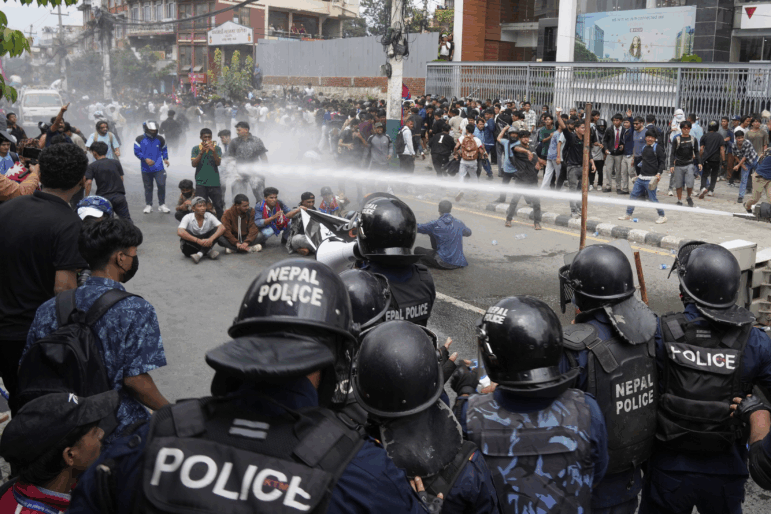KATHMANDU, Nepal — Nepal’s government lifted its ban on social media platforms Tuesday a day after police killed opened fire on mass street protests against the ban, killing 19 people.
The district administration ordered an indefinite curfew in the capital and schools were closed. A curfew was also imposed in two other cities.
Several widely used social networks, including Facebook, X and YouTube were blocked in the Himalayan nation last week after failing to comply with a new requirement to register and submit to government oversight.
Rallies against the ban swelled to tens of thousands of people in Kathmandu and crowds surrounded the Parliament building before police opened fire on the demonstrators.
“Stop the ban on social media. Stop corruption, not social media,” the crowds chanted, waving national flags. Monday’s rally was called the protest of Gen Z, which generally refers to people born between 1995 and 2010.
Seven of those killed and scores of the wounded were received at the National Trauma Center, the country’s main hospital.
“Many of them are in serious condition and appear to have been shot in the head and chest,” said Dr. Badri Risa. Families waited for news of their relatives while people lined up to donate blood.
Prime Minister Khadga Prasad Oli said in a statement he was forming an investigating committee to submit a report in 15 days and that compensation would be given for the lives lost and free treatment for the wounded.
Home Minister Ramesh Lekhak also resigned at an emergency Cabinet meeting late Monday.
The violence unfolded as Nepal’s government pursues a broader attempt to regulate social media with a bill aimed at ensuring the platforms are “properly managed, responsible and accountable.” The proposal has been widely criticized as a tool for censorship and for punishing government opponents who voice their protests online.
The registration requirement applied to about two dozen social networks widely used in Nepal.
Neither Google, which owns YouTube, nor Meta, the parent company of Facebook, Instagram and WhatsApp, responded to requests for comment from The Associated Press. Elon Musk’s X platform did not respond either.
The video-sharing app TikTok, Viber and three other platforms have registered and operated without interruption.
The bill includes asking the companies to appoint a liaison office or a point of contact in the country. Rights groups have called it an attempt by the government to curb freedom of expression and fundamental rights.
Nepal in 2023 banned TikTok for disrupting “social harmony, goodwill and diffusing indecent materials.” The ban was lifted last year after TikTok’s executives pledged to comply with local laws, including a ban of pornographic sites that was passed in 2018.

